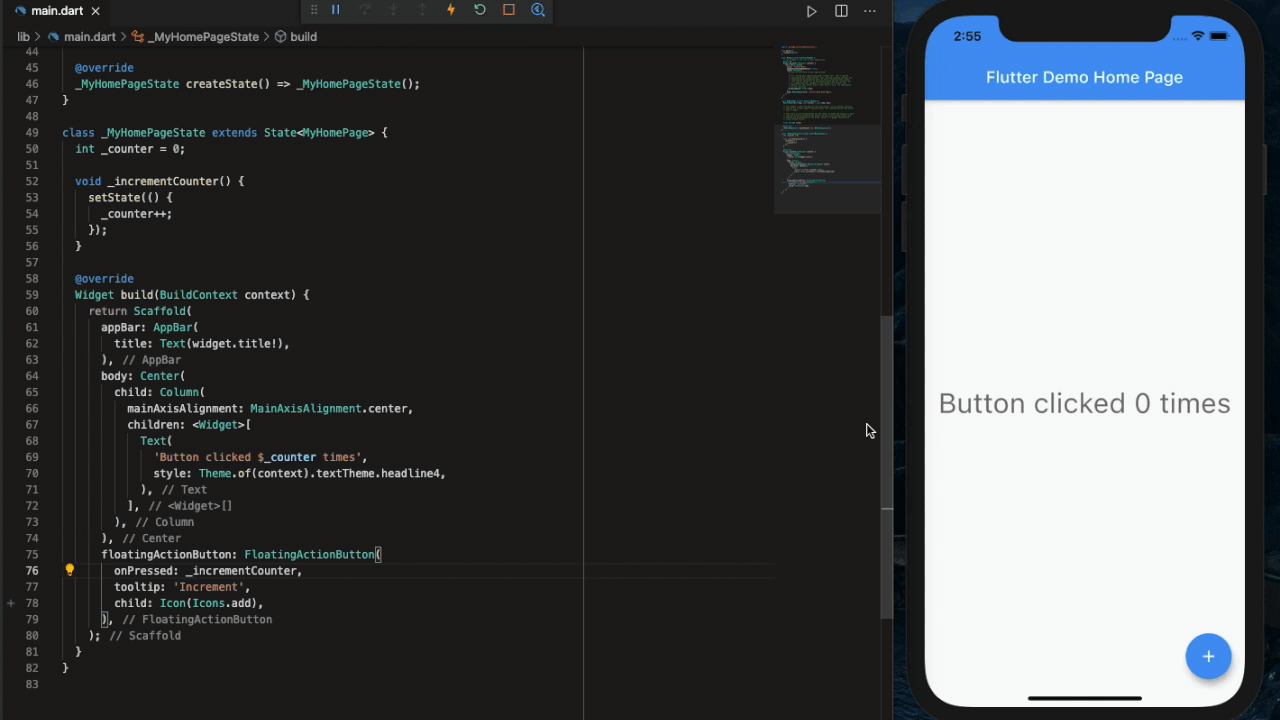While building the iOS platform views support we only enabled it when the app developer explicitly specified it with a flag, the main reasons were using an untested thread configuration, and taking a performance hit (even when no platform view is used due to disabled raster cache). Now that we are using the same dynamic thread configuration whether platform views is used or not, and that raster cache works with platform views in the tree as well, we are almost ready to enabled the platform views support by default. As a first step, I'm enabling it for the Flutter Gallery app on which we run benchmarks. After monitoring the benchmarks and making sure the gallery takes no hit we should be more confident to enabled platform views by default. This change is expected to have no performance effect on the Gallery app at all.
Flutter is Google's SDK for crafting beautiful, fast user experiences for mobile, web and desktop from a single codebase. Flutter works with existing code, is used by developers and organizations around the world, and is free and open source.
Documentation
For announcements about new releases and breaking changes, follow the flutter-announce@googlegroups.com mailing list.
About Flutter
We think Flutter will help you create beautiful, fast apps, with a productive, extensible and open development model.
Beautiful user experiences
We want to enable designers to deliver their full creative vision without being forced to water it down due to limitations of the underlying framework. Flutter's layered architecture gives you control over every pixel on the screen, and its powerful compositing capabilities let you overlay and animate graphics, video, text and controls without limitation. Flutter includes a full set of widgets that deliver pixel-perfect experiences on both iOS and Android.
Fast results
Flutter is fast. It's powered by the same hardware-accelerated Skia 2D graphics library that underpins Chrome and Android. We architected Flutter to support glitch-free, jank-free graphics at the native speed of your device. Flutter code is powered by the world-class Dart platform, which enables compilation to 32-bit and 64-bit ARM machine code for iOS and Android, as well as JavaScript for the web and Intel x64 for desktop devices.
Productive development
Flutter offers stateful hot reload, allowing you to make changes to your code and see the results instantly without restarting your app or losing its state.
Extensible and open model
Flutter works with any development tool (or none at all), but includes editor plug-ins for both Visual Studio Code and IntelliJ / Android Studio. Flutter provides thousands of packages to speed your development, regardless of your target platform. And accessing other native code is easy, with support for both FFI and platform-specific APIs.
Flutter is a fully open source project, and we welcome contributions. Information on how to get started can be found at our contributor guide.

